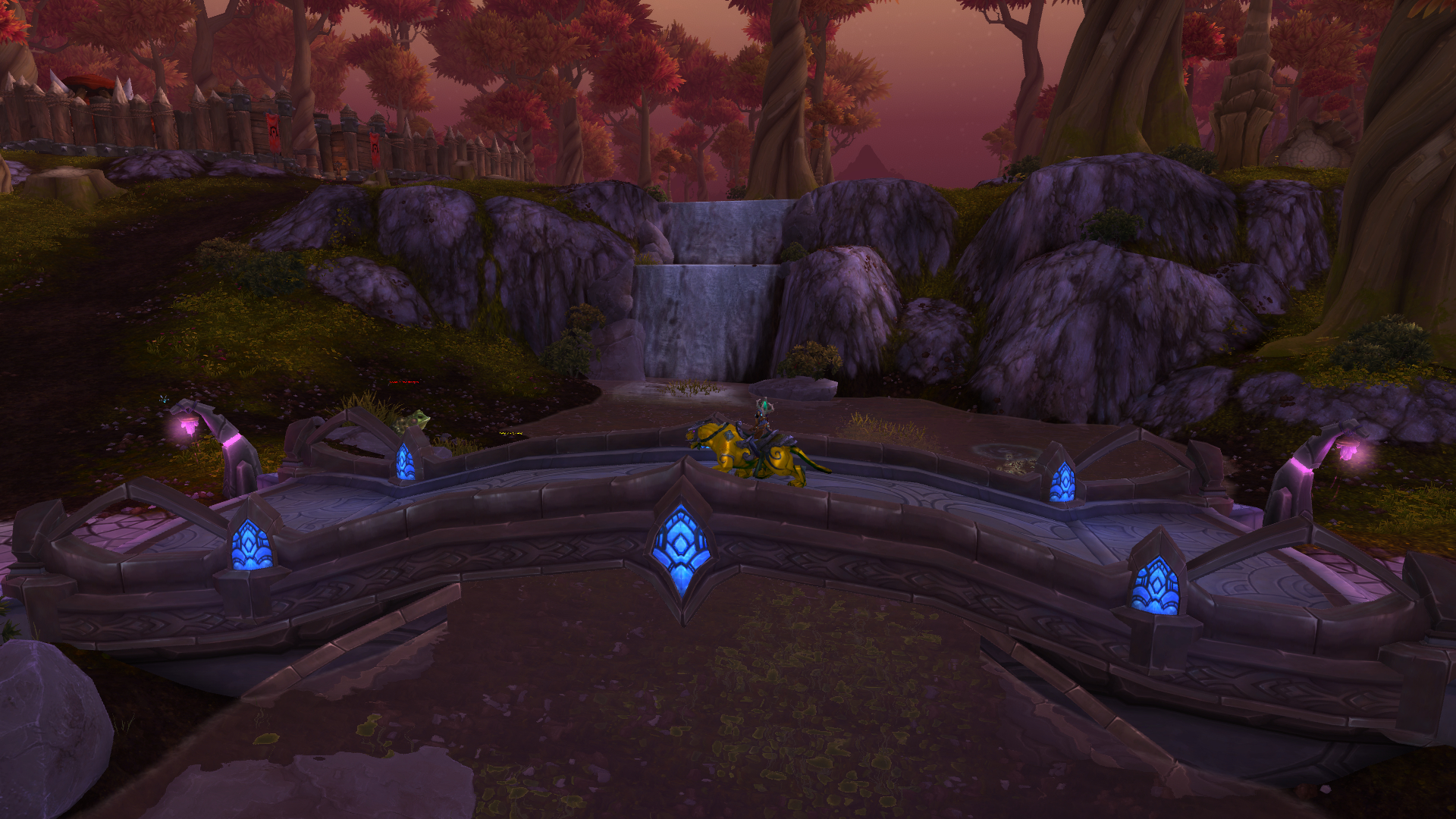We have decided to do our project on video games and the effects on children; more importantly, what parents can do to educate their children on realism vs. fantasy. The idea behind this topic is to help other parents become aware of what video games can do to their children. A 13-year boy jumped from a building because he thought he would come back to life the way you can in World of Warcraft. As a result, the boy died and the parents tried to sue the company, Blizzard Entertainment for this (the company responsible for World of Warcraft). Many of us would agree that it is the parent’s responsibility to educate their children and ensure that their child realizes the difference between reality and fantasy, and the dangers in reenacting what they see in games.

According to many studies and reports, realism in the video is improving; each new game on the market has more sophisticated graphics and sound effects. Video games are one of the most preferred activities for children, but the sad thing about it is that 80% of the video games contain violence and this only increases the risk factor for aggressive behavior and desensitizes them to violence. Similarly to the statistics of television watching, video game habits relates to poorer health and academic performance.
What can parents do to educate their children on realism vs. fantasy? Many parents don’t worry about their children playing violent video games, but maybe if they had a good resource for information to educate them, they will be better equipped to prepare and prevent their children from becoming a statistic.

Project 1: Definition and Ethics
SEO is an abbreviation for search engine optimization. It is a method of analyzing and constructing individual web pages. Search engine Optimization is the process of improving the visibility of a web site or a web page in search engines, via the “natural” or unpaid search results. Other forms of search engines market target paid listings. SEO may target different kinds of searches, including image searches.
“SEO can make the content of your web pages more relevant, more attractive, and more easily read by search engines and their crawling and indexing software” (SEO Workers, 1). SEO is important to not only the user but also to the designer. If you wind up in the first few results, then you’ll have more traffic running through your Web site thus, more business. For the viewer, your Web site might be exactly what they’re looking for, but if it’s not correctly optimized, they won’t find it.

When working with SEO there is a limit to how far you should go to get your site rank higher. Some examples of unethical SEO are:
- Misleading optimization-Purposely optimizing pages for keywords that are not content relevant.
- Keyword stuffing-Loading the page with a plethora of keywords
- Attempting to gain multiple SERP positions by duplicating content on different pages
- Creating misleading “doorway” or “Cloaked” pages, which distort the true content of the website.

By allowing this type of unethical SEO on your website, you risk losing the site’s credibility and being “outed” by your competitors. “Spammy” techniques can also hurt usability.
Search engines have different rules for detecting spam but in the end, the results are the same. You can be banned, lose your rankings, and can be delisted from search results. It’s true that using unethical techniques may benefit your site briefly, and will last for days, weeks or maybe even months, but eventually, search engines discover the use of spam. Once delisted, it will be very difficult and time-consuming to be reinstated.

Unethical SEO can be avoided if you build your site with your audience in mind and provide them with relevant content. Giving them what they need will result in users loyalty. Pages should be well structured and use descriptive page titles and other page text. You should also focus on refining your site so that they are visible to the search. It is also essential to use the right keywords and make sure that it is relevant to the site. Lastly, it will be beneficial to know the SEO code of ethics and search engines guidelines to avoid any unethical SEO that can penalize and ban your site temporarily or permanently.
Techniques
When implementing SEO into a Web site, you must first have some solid techniques in mind. One very important thing to remember is your page elements; specifically, text (keywords), tags (HTML and meta tags), links, and popularity.
Text is one of the most important elements of any Web site. That being said, many of the key components should be within the title and/or subtitle. Repeating these keywords throughout will also ensure that our Web site gets recognized. One of the disadvantages is that if you don’t choose the correct keywords, it won’t be effective. High level headings could be incorporated as well. This will be important when a crawler examines a Web site. When considering links to be included in your Web site, you must first be sure that they relate to the content of your site and that they are active links to real Web sites. This is because broken links can lower your ranking. Links are helpful to your site because they show interactivity with the community. Lastly, popularity can help determine where your Web site gets ranked by how many clicks on your Web site are returned in search results. If your site isn’t too popular and doesn’t get very many clicks, you will be lower in ranking. Gaining popularity can be difficult, especially if your site is an uncommon type that isn’t optimized with the right keywords. You can build buzz by advertising in places such as Facebook, Twitter and MySpace, or even through newsletters and e-mail announcements.
Naming and Titles can help your site if done strategically. For example, choosing a name that includes the specific nature of service offered will help your rankings. Also, keeping the name short and not including numbers or punctuation is a good idea. Adding random numbers or a piece of punctuation that aren’t relevant to your Website, will not get your site recognized. In fact, it may do the opposite. Something else to consider is to use a .com name whenever possible. This is because users tend to think in terms of .com thus, making it easier for them to remember.
That being said, the programming language is also an important factor in designing a successful Website. Our optimized page will consist of HTML. The reason for this is because although interesting and dynamic, JavaScript and Flash have too many negatives where SEO is concerned. JavaScript, often completely halts a crawler from indexing a Web site, which can result in lower or simply no ranking at all. Flash, in terms of SEO specifically, will stop a crawler, resulting in the crawler moving on to the next result. HTML is a straightforward language and as long as it’s validated (which will ensure that crawlers won’t be turned off by any garbage that’s lurking in your code), you’re likely to end up with a successful Web site.
Lastly, maintaining your website on a consistent basis is important. Once our site is launched, we would need to check it periodically for content thieves and make sure that all links are working properly and that no tags have changed during, or after an update. Also, sometimes keywords need to be updated when the site is updated if new information is being added.
References
Dan, Johnson. “Why SEO is important to your Web site.” seoworkers.com. SEO Workers Internet Marketing Consulting, 10/05/2007. Web. 23 Oct 2010. <http://www.seoworkers.com/seo-articles-tutorials/search-engine-optimization.html>.
“Non Content SEO.” mediacollege.com. Wavelength Media, n.d. Web. 23 Oct 2010. <http://www.mediacollege.com/internet/search-engines/seo/non-content.html>.
Susan, Esparza. “Don’t Risk Your Rankins with Unethical SEO.” searchengineguide.com. K. Clough, Inc., 05/15/2007. Web. 23 Oct 2010. <“Non Content SEO.” mediacollege.com. Wavelength Media, n.d. Web. 23 Oct 2010. .>.
Ledford, Jerri L. Search Engine Optimization. 2nd Edition. Indianapolis, IN: Wiley Publishing Inc., 2009. 47-78. Print.




